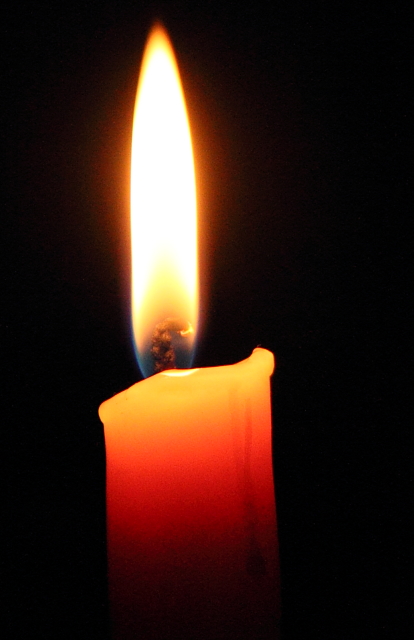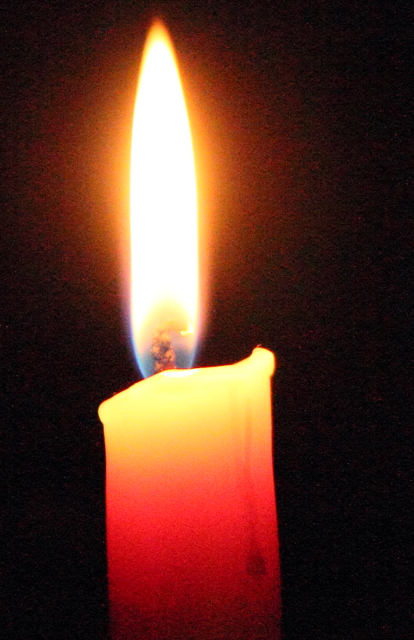Theories have been advanced here concerning the lack of brightness of the flame, its flickering, small depth of field, air turbulence, and other things. All are interesting and plausible.
Let's check some of them.
###Brightness of flame###
Brightness of flame
This image (unretouched; converted from RAW to JPG for uploading) was taken with a 50 mm lens at a distance of about 100 cm (3 feet). The exposure was 1/200 sec f/3.5 at ISO 1600. The flame is certainly bright enough!

###Flickering and air turbulence###
Flickering and air turbulence
You can see even in this short exposure that the edge of the flame is soft. This was a steady flame; there cannot have been much flickering in 1/200 second. The softness is because there is no edge to the flame! The following is the same image, brightened by 2 stops.

The enhancement shows a corona of light surrounding the flame. It is not a partially illuminated backdrop: it emanates from the candle itself. The light is blackbody radiation from the combustion byproducts (soot and gases). The transition from the burning (bright) part of the flame to the burnt corona is sharp, but not extremely so.
The details apparent in the wick demonstrate the focus is spot on.
###Depth of field###
Depth of field
Even at f/1.4 (where depth of field would be least), with a subject distance at 100 cm, the DoF is about 1 cm in front and behind the flame: more than enough to have the entire flame in focus. (In this image, at f/3.5, the depth of field extends about 2.5 cm--one inch--before and behind the wick.) Thus, establishing a decent DoF is not a consideration.
Softness at wide apertures, mis-focusing (solved by focusing on the wick), and movement of flame are much more likely causes of an unsharp image.
###Conclusions###
Conclusions
Candle flames are bright enough to allow adequate control of the exposure: you can take rather short exposures at moderate f/stops without using extremely high sensitivities. However, as diffuse radiant balls of gas, they are inherently not sharp and will not appear to be so, no matter how well focused.
